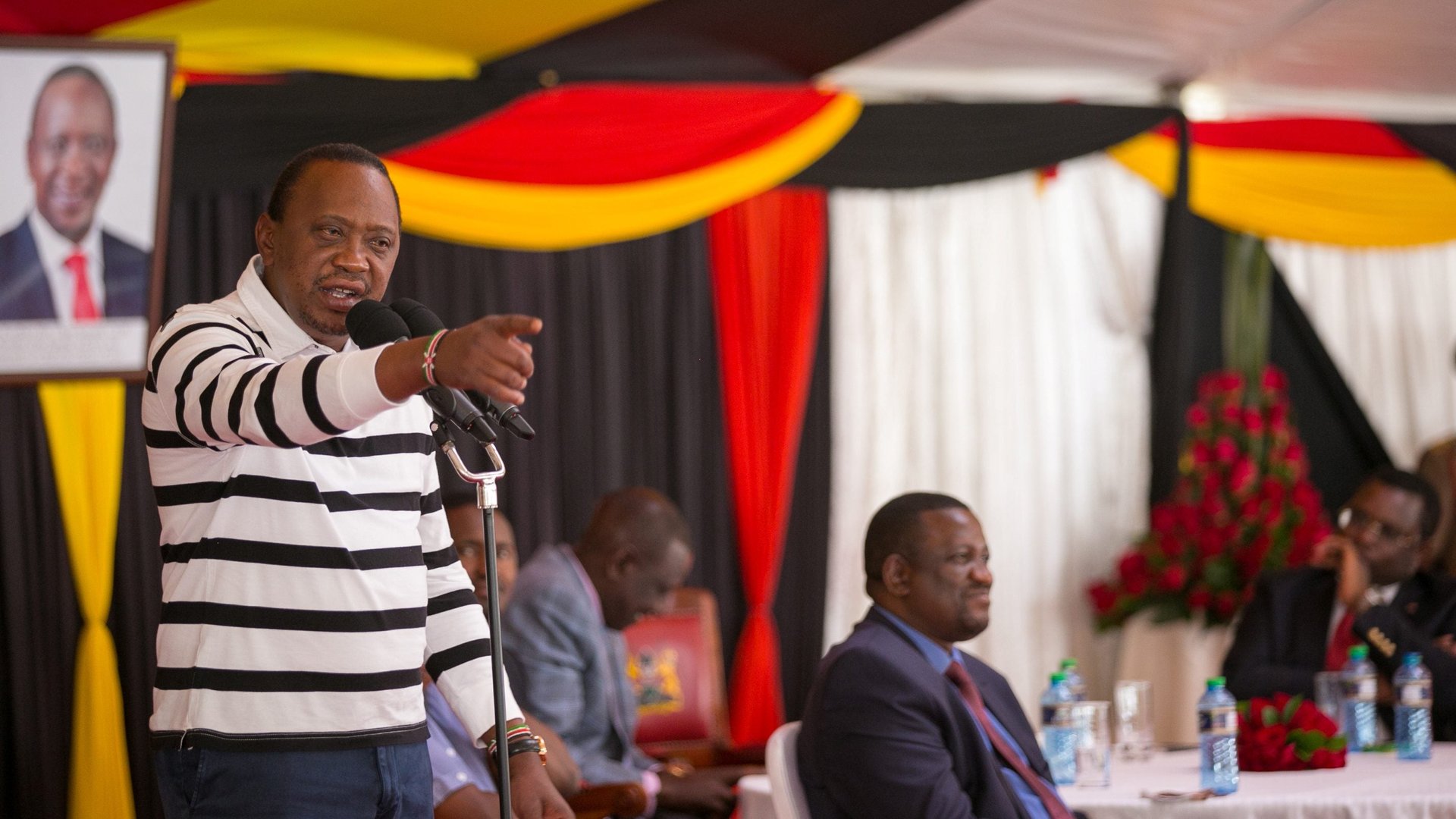What happens now that Kenya has annulled its presidential election
Kenya’s supreme court stunned the nation last week by declaring the country’s Aug. 8 presidential election invalid and ordering a new vote. On Oct 17, incumbent president Uhuru Kenyatta, declared the winner of last month’s poll, will face his rival Raila Odinga—again.


Kenya’s supreme court stunned the nation last week by declaring the country’s Aug. 8 presidential election invalid and ordering a new vote. On Oct 17, incumbent president Uhuru Kenyatta, declared the winner of last month’s poll, will face his rival Raila Odinga—again.
Odinga had petitioned the court to overturn the result, claiming the electoral system was hacked and rigged in Kenyatta’s favor. In its ruling, the court concluded the election “was not conducted in accordance with the constitution,” rendering the declared results “invalid, null and void.”
It’s unclear how the new vote will work. Kenya’s electoral body, the Independent Electoral and Boundaries Commission (IEBC), has been at the center of election fraud accusations by Odinga’s NASA coalition. NASA is calling for a new commission to oversee the vote redo—a task that will prove Sisyphean given how intense the recruitment and training process is for commissioners. Some politicians are calling for the United Nations to hold the poll.
Another election will be expensive. Kenya spent at least $480 million in government funds on the August vote. Following the announcement on Friday, the country’s main stock market had to halt trading for half an hour after shares plummeted. Safaricom, Kenya’s largest listed company, lost 5.8% on the Nairobi Securities Exchange.
A second election will cost Kenyans something too. Millions traveled to their homes villages to vote or avoid potential violence in cities, putting their lives and jobs on hold. They’ll have to do that again.
Odinga’s petition could beget yet more petitions from the thousands of candidates who lost other races on Aug 8. More than 14,000 candidates ran for about 1,900 electoral seats.
In the immediate term, the decision helped Kenya’s judiciary assert independence from the government, gaining trust in a country that views its institutions as some of the most corrupt in the world. Kenyatta is doing his best to undermine that trust.
Speaking at a rally in Nairobi after the court announcement, Kenyatta called the judges “crooks” and reminded supporters that he is still the incumbent president. (Under the constitution, he remains the “temporary incumbent” but has no power to appoint judges or nominate or dismiss a cabinet.)
“We shall revisit this thing. We clearly have a problem,” Kenyatta said, referring to the judiciary. “Who even elected you? Were you [elected]? We have a problem and we must fix it.” His lawyer said only a “third world court” would make such a decision.
Odinga for his part is going after the international election observers who endorsed the Aug 8 poll. Some 400 election monitors from the African Union, the European Union, and the United States, including former US secretary of state John Kerry, said vote had been “free, fair and credible.” After the high court came to the exact opposite conclusion, Odinga released a statement: “With this courageous verdict we put on trial the international observers who moved fast to sanitize fraud. Their role must be reexamined.”
When Kenyatta was declared the winner last month, he said that “in a true democracy, all Kenyans are winners.” As the country gears up for another round of campaigning, voters can only hope that both candidates try to live up to that truism.